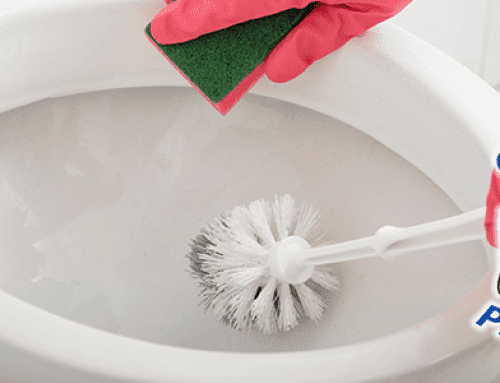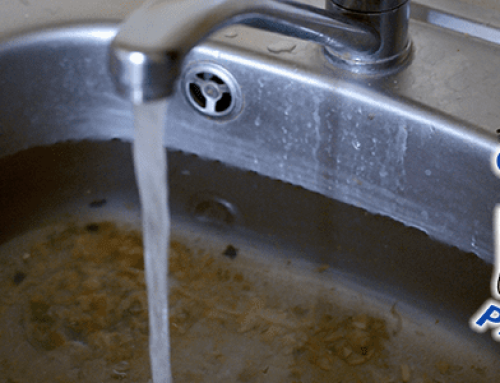They have been passed down from generation to generation and might seem harmless, but we feel it’s time to debunked some of the most common plumbing myths we hear from our customers. Whether it’s little tricks to fix a nuisance or ignoring major red flags, it’s time to put an end to this plumbing folklore and unnecessary damage. Here are 4 common plumbing myths busted:
Myth #1: Lemon is a Natural Way to Clean Your Garbage Disposal
While it may seem like a good idea to freshen up your smelly disposal by running a lemon through it, a lemon will only temporarily take care of the smell and won’t actually give your disposal the cleaning it needs. In fact, lemon peels can be very damaging to your disposal blades. If you are looking for a way to rid yourself of the smell and want to thoroughly clean your disposal without damaging it, warm water, soap, and a brush will do the trick. But before you get to cleaning, make sure to disconnect the disposal from its power source then you are free to clean away!
Myth #2: Running Water While Using the Garbage Disposal Helps the Disposal Function Smoothly
Probably one of the most common plumbing myths is that running water while using the garbage disposal will always help the disposal function smoothly. Yes, this is generally a good idea to do with most foods. However, many homeowners believe that they can put just about ANYTHING down their garbage disposals as long as they run water. The truth is, certain items should never be put down your disposal, no matter how much water you run. Non-food items and hard or thick foods can severely damage your disposal. Below is a list of some of the biggest disposal no-nos.
Disposal No-Nos:
- Bones
- Coffee grounds
- Egg shells
- Fruit pits
- Grease
- Banana peels
- Any non-food items
Myth #3: If It Seems To Be Working, It’s Working
Just because everything seems to be working as it should, doesn’t mean it is. We have all heard it or tried it: “just jiggle the handle.” You might think sometimes the water in your pipes just runs a little slower or it takes a slight adjustment to get the water in your toilet to stop running. Instead, think of these slight annoyances as red flags to a bigger problem! These little ‘tricks’ may seem like minor inconveniences now, but your plumbing could be on the brink of failure. A home’s plumbing system is delicate and even seemingly minor issues can throw the entire system out of order if problems are neglected. So, next time you’re tempted to jiggle the handle on your toilet remember that “if it seems to be working, it’s working,” is just another common plumbing myth.
Myth #4: A Leaky Faucet Doesn’t Matter
For some people a leaky faucet isn’t a big deal. Surprisingly, these people aren’t factoring in the money loss and water waste. Leaky faucets are actually a major signal for potential underlying problems with your plumbing system. All faucets in your house should maintain proper water pressure and should be free from leaks and drips. On top of the potential for underlying problems, ignoring the dripping from your faucet will cost you extra on your water bill. According to National Geographic, leaks contribute to about 14% of your average water use each day. Which means that leaky faucet, that didn’t seem like such a big deal, is actually costing you some real money. If you notice a drip in your faucet, even a small and slow one, don’t ignore it. Bust this myth and have a professional fix your leaky faucet so you can stop your money from going down the drain.




